Filter by
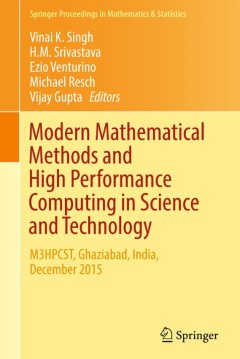
Modern Mathematical Methods and High Performance Computing in Science and Tec…
The book discusses important results in modern mathematical models and high performance computing, such as applied operations research, simulation of operations, statistical modeling and applications, invisibility regions and regular meta-materials, unmanned vehicles, modern radar techniques/SAR imaging, satellite remote sensing, coding, and robotic systems. Furthermore, it is valuable as a ref…
- Edition
- 1
- ISBN/ISSN
- 978-981-10-1453-6
- Collation
- XXI, 309
- Series Title
- Springer Proceedings in Mathematics & Statistics
- Call Number
- -
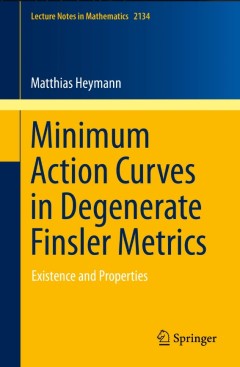
Minimum Action Curves in Degenerate Finsler Metrics
Presenting a study of geometric action functionals (i.e., non-negative functionals on the space of unparameterized oriented rectifiable curves), this monograph focuses on the subclass of those functionals whose local action is a degenerate type of Finsler metric that may vanish in certain directions, allowing for curves with positive Euclidean length but with zero action. For such functionals, …
- Edition
- 1
- ISBN/ISSN
- 978-3-319-17752-6
- Collation
- XV, 186
- Series Title
- Lecture Notes in Mathematics
- Call Number
- -
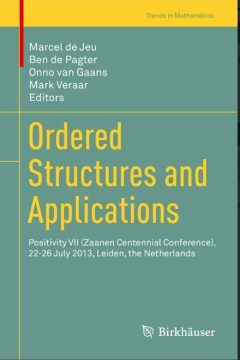
Ordered Structures and Applications : Positivity VII (Zaanen Centennial Confe…
This book presents the proceedings of Positivity VII, held from 22-26 July 2013, in Leiden, the Netherlands. Positivity is the mathematical field concerned with ordered structures and their applications in the broadest sense of the word. A biyearly series of conferences is devoted to presenting the latest developments in this lively and growing discipline. The lectures at the conference covered…
- Edition
- -
- ISBN/ISSN
- 978-3-319-27842-1
- Collation
- -
- Series Title
- Trends in Mathematics
- Call Number
- 510 ORD
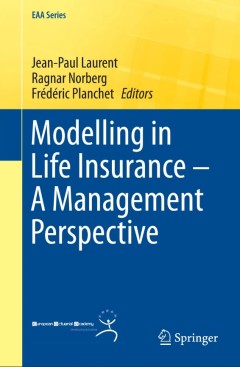
Modelling in Life Insurance – A Management Perspective
Focusing on life insurance and pensions, this book addresses various aspects of modelling in modern insurance: insurance liabilities; asset-liability management; securitization, hedging, and investment strategies. With contributions from internationally renowned academics in actuarial science, finance, and management science and key people in major life insurance and reinsurance companies, ther…
- Edition
- 1
- ISBN/ISSN
- 978-3-319-29774-3
- Collation
- XVI, 255
- Series Title
- EAA Series
- Call Number
- -

Elementary Mathematics from a Higher Standpoint Volume I: Arithmetic, Algebr…
These three volumes constitute the first complete English translation of Felix Klein’s seminal series “Elementarmathematik vom höheren Standpunkte aus”. “Complete” has a twofold meaning here: First, there now exists a translation of volume III into English, while until today the only translation had been into Chinese. Second, the English versions of volume I and II had omitted sev…
- Edition
- 1
- ISBN/ISSN
- 978-3-662-49442-4
- Collation
- 125 b/w illustrations
- Series Title
- -
- Call Number
- -

Elementary Mathematics from a Higher Standpoint Volume III: Precision Mathem…
These three volumes constitute the first complete English translation of Felix Klein’s seminal series “Elementarmathematik vom höheren Standpunkte aus”. “Complete” has a twofold meaning here: First, there now exists a translation of volume III into English, while until today the only translation had been into Chinese. Second, the English versions of volume I and II had omitted severa…
- Edition
- 1
- ISBN/ISSN
- 978-3-662-49439-4
- Collation
- 156 b/w illustrations
- Series Title
- -
- Call Number
- -

Elementary Functions Algorithms and Implementation
This textbook presents the concepts and tools necessary to understand, build, and implement algorithms for computing elementary functions (e.g., logarithms, exponentials, and the trigonometric functions). Both hardware- and software-oriented algorithms are included, along with issues related to accurate floating-point implementation. This third edition has been updated and expanded to incorpo…
- Edition
- 1
- ISBN/ISSN
- 978-1-4899-7983-4
- Collation
- 40 b/w illustrations
- Series Title
- -
- Call Number
- -
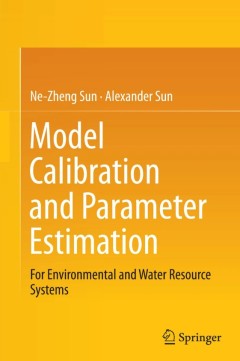
Model Calibration and Parameter Estimation
This three-part book provides a comprehensive and systematic introduction to these challenging topics such as model calibration, parameter estimation, reliability assessment, and data collection design. Part 1 covers the classical inverse problem for parameter estimation in both deterministic and statistical frameworks, Part 2 is dedicated to system identification, hyperparameter estimation, an…
- Edition
- 1
- ISBN/ISSN
- 978-1-4939-2322-9
- Collation
- XXVIII, 621
- Series Title
- -
- Call Number
- -
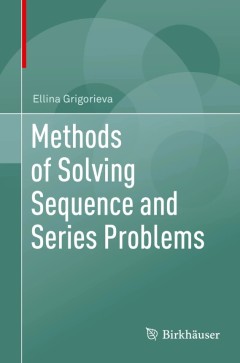
Methods of Solving Sequence and Series Problems
This book aims to dispel the mystery and fear experienced by students surrounding sequences, series, convergence, and their applications. The author, an accomplished female mathematician, achieves this by taking a problem solving approach, starting with fascinating problems and solving them step by step with clear explanations and illuminating diagrams. The reader will find the problems inte…
- Edition
- 1
- ISBN/ISSN
- 978-3-319-45685-0
- Collation
- XX, 281
- Series Title
- -
- Call Number
- -
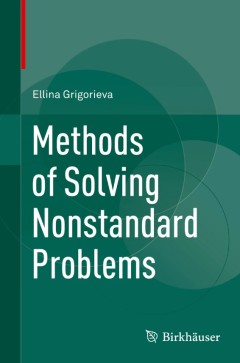
Methods of Solving Nonstandard Problems
This book, written by an accomplished female mathematician, is the second to explore nonstandard mathematical problems – those that are not directly solved by standard mathematical methods but instead rely on insight and the synthesis of a variety of mathematical ideas. It promotes mental activity as well as greater mathematical skills, and is an ideal resource for successful preparation fo…
- Edition
- 1
- ISBN/ISSN
- 978-3-319-19886-6
- Collation
- XXI, 327
- Series Title
- -
- Call Number
- -
 Computer Science, Information & General Works
Computer Science, Information & General Works  Philosophy & Psychology
Philosophy & Psychology  Religion
Religion  Social Sciences
Social Sciences  Language
Language  Pure Science
Pure Science  Applied Sciences
Applied Sciences  Art & Recreation
Art & Recreation  Literature
Literature  History & Geography
History & Geography